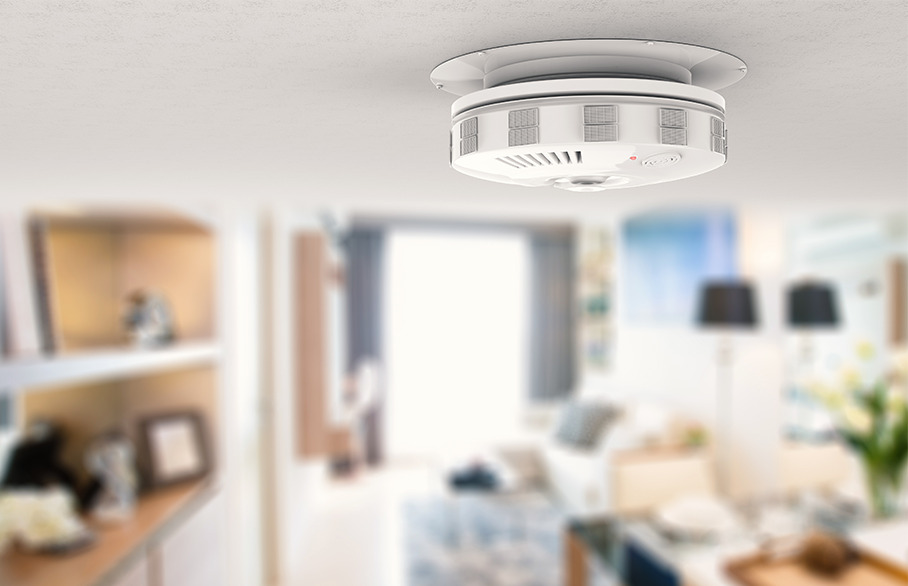
The Government has always been committed to improving safety and standards for all tenants, regardless of tenure. And in its recent White Paper, which was outlined in the Queen’s Speech in May and published in June, there was a particular focus on raising standards in the social rented sector.
So the Smoke and Carbon Monoxide Alarm (England) Regulations 2015 have been amended so the rules that currently apply to the Private Rented Sector (PRS) are extended to the social sector. At the same time, some changes are being made that will apply to rented properties across the board.
What were the rules for carbon monoxide (CO) alarms?
As it stands, for all privately rented properties:
- There must be a CO detector alarm in all rooms that have a solid fuel-burning appliance, such as a coal fire or wood-burning stove
- Alarms must be tested at the start of each tenancy to make sure they are in proper working order
- While it’s the tenant’s responsibility to check they remain in working order during the tenancy, we recommend they’re tested during periodical inspections as a matter of good practice.
What are the new rules?
Following a consultation that ran from November 2020 to January 2021, three key changes have been made that private landlords need to be aware of:
- The rules extend to gas boilers, meaning you must install a CO alarm in any room that has a gas boiler (gas cookers are excluded)
- When a new fixed combustion appliance is installed in any home, a CO alarm must also be installed
- If your tenant informs you (or your agent) that there’s a fault with an alarm, you are legally required to repair or replace it “as soon as reasonably practicable” – and this also applies to smoke alarms.
Testing alarms during the tenancy will still be the tenant’s responsibility.
These changes came into force on 1st October 2022 for both new and existing tenancies. A periodical review of the regulations will be carried out and published by the government, with the first one due before 1st October 2027.
What action do private landlords need to take if you haven't already?
The majority of properties in the PRS have a gas boiler, so for most landlords it’ll be a case of installing a CO alarm in the room where the boiler is fitted – and the rules also include oil-fired boilers.
The good news is, it’s not a big or expensive job. The CO detector doesn’t have to be hardwired or linked to the smoke alarms and you can buy a battery-operated CO alarm for £20-£25, which should last for around 10 years.
So these changes aren’t a major issue for landlords and we welcome improved tenant safety .
If we manage your property, you will have heard from us to ensure you have the right alarms in place, but if you have any questions you can get in touch with us at any time.
CO detector rules around the UK
Wales: The current rules are the same as for England and when the Renting Homes (Wales) Act 2016 comes into force on 1st December this year, the new rules will more or less continue to mirror England.
Scotland: CO detectors must be fitted in every space containing a fixed combustion appliance. They must also be installed in any room considered high-risk, e.g. a bedroom or living room, if a flue passes through it.
Northern Ireland: While there’s no specific legislation requiring landlords to have CO alarms, reasonable provision must be made to detect harmful levels of CO gas, and Building Regulations state that when a new fuel-burning appliance is installed, a CO alarm must be fitted.
Want to know if you are achieving the best rent? Book a lettings review and find out
The Your Move Content Marketing Team



